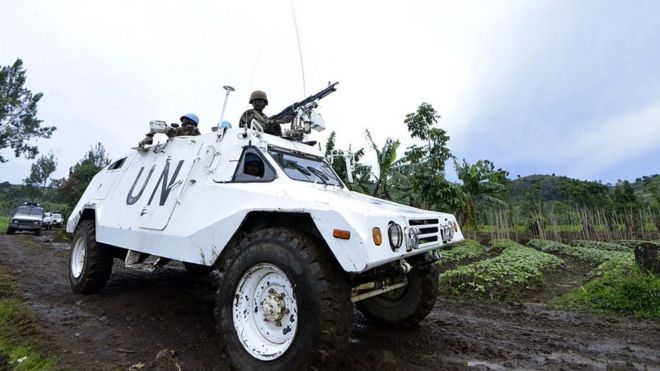Last Monday, 24 April, it was easy to miss the important news that the Supreme Court denied cert in the ACLU’s Freedom of Information Act lawsuit to make public the full Senate Intelligence Committee report on the CIA’s use of torture. The news was lost in the frenzied media analysis of Trump’s first 100 days, new opinion polls on his performance, and a looming possible government shutdown over the border wall.
The ACLU is to be commended for their leadership both in this FOIA request, and in the ground-breaking lawsuit Salim v. Mitchell. That suit was brought by torture victims and the family of a man tortured to death by the CIA, and fortunately is moving forward in a Spokane federal court.
But this Supreme Court decision on the Senate report is a blow to efforts at accountability for this dark chapter in US history, and bad news for Americans who want open government and transparency. From the declassified but heavily-redacted executive summary that is available, we know that the CIA’s interrogation tactics were both more brutal and less effective than was acknowledged publicly. The CIA did not provide oversight at the black sites it maintained, and it lied to Congress and the public about the number of detainees it held and tortured during the period following 9/11.
The Supreme Court’s denial of public access to the full Senate report means we will be forced to continue wondering how much torture was used, the level of damage it did to the US, and which private entities may have been involved. Most disturbingly, the decision blocks the robust public debate that release of the full report would stimulate. It continues the shielding of responsible officials from any form of accountability, and keeps the American public and our elected leaders from learning lessons from the failed tactics of the past.
One of President Obama’s final acts in office was to preserve the report under the Presidential Records Act — a positive step given that many elected officials, including Senate Select Intelligence Committee Chair Richard Burr (R-N.C.), have advocated destroying all classified versions. But this step also meant that the report would remain hidden from the public for at least twelve years, and perhaps much longer.
Our current President has, at best, easily-influenced and inconsistent views on torture. President Trump, both while campaigning and even after taking office, has openly supported and endorsed resuming torture, although he has also backtracked on his own statements. His appointment of Deputy CIA Director Gina Haspel, who once oversaw a CIA black site in Thailand and was physically present during torture sessions, further underscores that more information about the torture, rendition and detention program must be revealed.
The lack of government transparency and public accountability — reinforced by this week’s Supreme Court decision — makes the work of organizations pushing for accountability all the more vital. One such initiative worth noting is the recently launched non-governmental North Carolina Commission of Inquiry on Torture (NCCIT).
NCCIT was established to investigate and bring about public accountability for the specific role that North Carolina’s state and local governments played in supporting the US torture program. The declassified portion of the Senate report’s executive summary, as well as independent media investigations, have confirmed that it was a CIA-affiliated company, Aero Contractors, which for several years launched “torture taxi” flights from public airports in Smithfield and Kinston, North Carolina. These flights were dispatched to pick up suspected terrorists abroad and transport them to black sites and third countries, where they were indefinitely detained and tortured.
Since 2005, the use of taxpayer-supported state aviation facilities as staging grounds for abduction missions has driven North Carolinians to insist that local and state elected officials investigate and try to halt the “torture taxis.” Now, NCCIT has assembled a high-profile panel of policy experts, academics and community leaders who are doing the job that their government refuses to do: hold public hearings to investigate North Carolina’s role. The inquiry is probing what elected officials knew, how public resources were used, and — critically — who was harmed in the process and therefore deserves acknowledgement and redress. Elected leaders at all levels can use that information to ensure state resources are not further spent on human rights abuses, and to try to right past wrongs.
North Carolina citizens have a right to know what role their tax dollars, their elected officials and companies operating in their state played in the US torture program. And this information may be contained within the Senate report that all branches of our federal government apparently think should remain classified.
The truth will eventually come out one way or another, and history will be our judge. The real-time question is whether we will have the opportunity to learn from this dark chapter in American history before it is repeated.
David M. Crane, Founding Chief Prosecutor, Special Court for Sierra Leone; Professor, Syracuse University College of Law.
Catherine Read, Executive Director, North Carolina Commission of Inquiry on Torture.
Suggested citation: David M. Crane and Catherine Read, Amidst a set-back for transparency, citizen led Accountability in North Carolina, JURIST – Forum, May 4, 2017, http://jurist.org/forum/2017/05/Crane-Read-accountanbility-in-north-carolina.php
This article was prepared for publication by Yuxin Jiang, a Senior Editor for JURIST Commentary service. Please direct any questions or comments to her atcommentary@jurist.org


